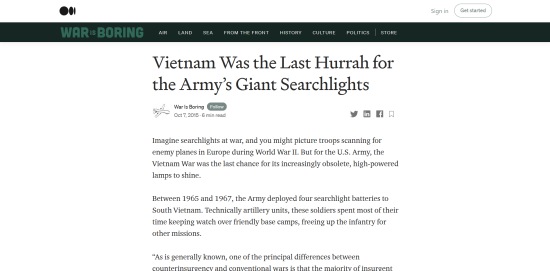
496 pages. Map of northeastern Africa. Foreword, guide to military symbols, glossary of military terms, acknowledgments, bibliography, author note.
This book is the sequel to Sword Point and continues with many of the same characters, but can easily be read on its own.
This book was written in 1990. It is about a 'near future' in which the Soviet Union and the USA are still superpower rivals, and Libya is a Soviet client state.
As the novel begins, the United States is actively thwarting Soviet aims in northeastern Africa. Special forces are covertly supporting Sudanese forces in cross-border raids against Soviet forces in Ethiopia, and the army is about to begin a major exercise with the Egyptian army.
In response, the Soviet Union decides to flex its muscles. What if they simultaneously stage an exercise with their Libyan allies?
But what if one of the Libyan generals has ambitious plans of his own?
The author's first novel followed a small unit of men as they went to war. His second novel (prequel to this one) followed a large cast of characters as they fought a war in Iran. This novel similarly follows a large cast of characters, but there is a primary protagonist: Lieutenant Colonel Scott Dixon, a war hero after his actions in the previous novel, but limited in his career by untreated PTSD and an unsupportive wife. Stuck in a dead-end Pentagon job, Dixon is forced back into action when the Egyptians want a 'prestigious' officer to replace a recently slain liaison officer. Meanwhile, his wife sees this as a last chance to escape being a military wife and to restart her career in television journalism, working with an old friend now based in Cairo.
As you expect from this author, the novel has a wide variety of tactical combat situations involving Americans, Soviets, Sudanese, Ethiopians, Libyans and Egyptians, mostly on land, but also at sea and air. He also tells the story from a variety of viewpoints, including an Egyptian tanker and a Soviet commander. There's even a 'romantic triangle' subplot.
I found this novel a disappointment compared to the previous novels. None of the characters resonated with me, and many of the combat situations were one-sided. I found it hard to finish.
However, the plot itself is intriguing. What starts as a Russian response to American influence in Africa builds by a series of miscalculations, mistakes, and manipulations by third parties to a climax that neither superpower anticipated.
The plot is good, it's the story that's not so interesting.
Can you game it? Most of the fictional combats are too one-sided for the tabletop, but the plot itself can be the inspiration for a tabletop campaign or two, particularly involving Libyan and Egyptian forces.
Recommended for those who will appreciate the plot.
Reviewed by ![]() Editor in Chief Bill
Editor in Chief Bill ![]()
![]() .
.








